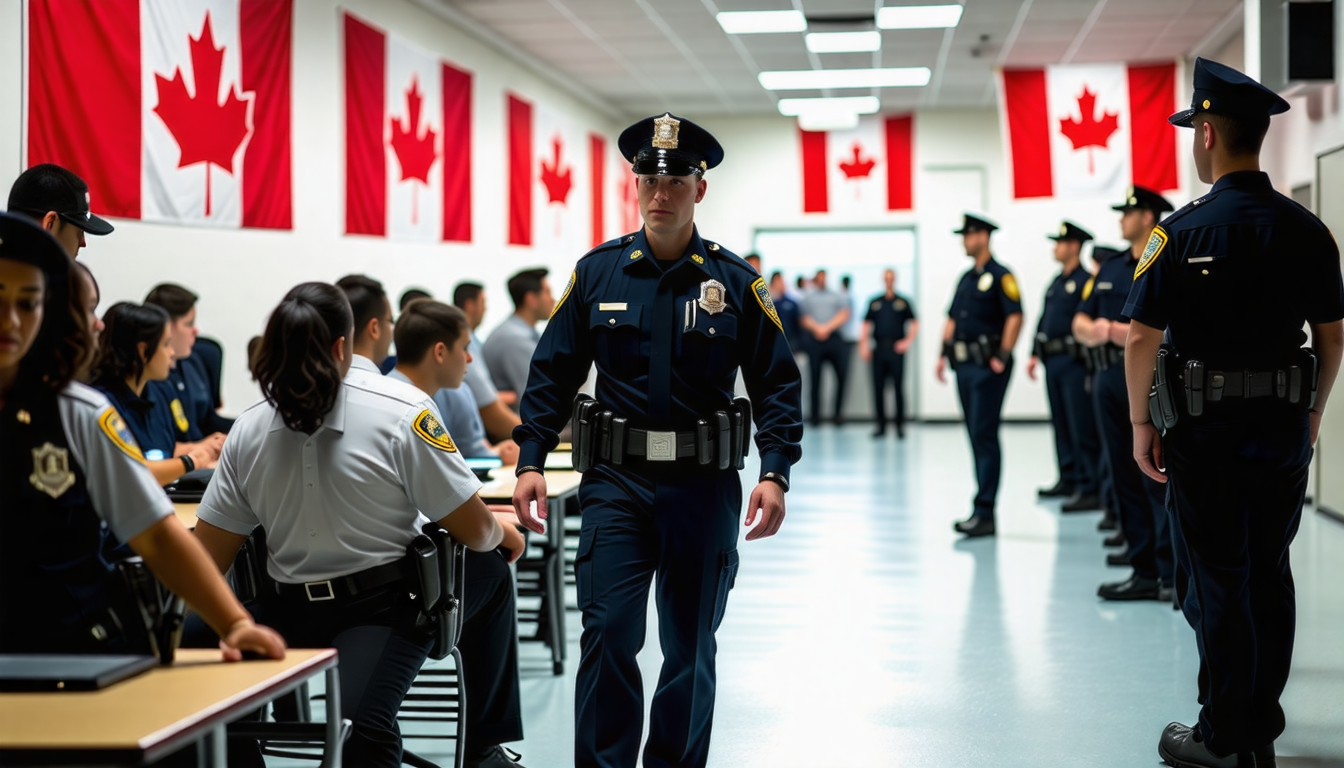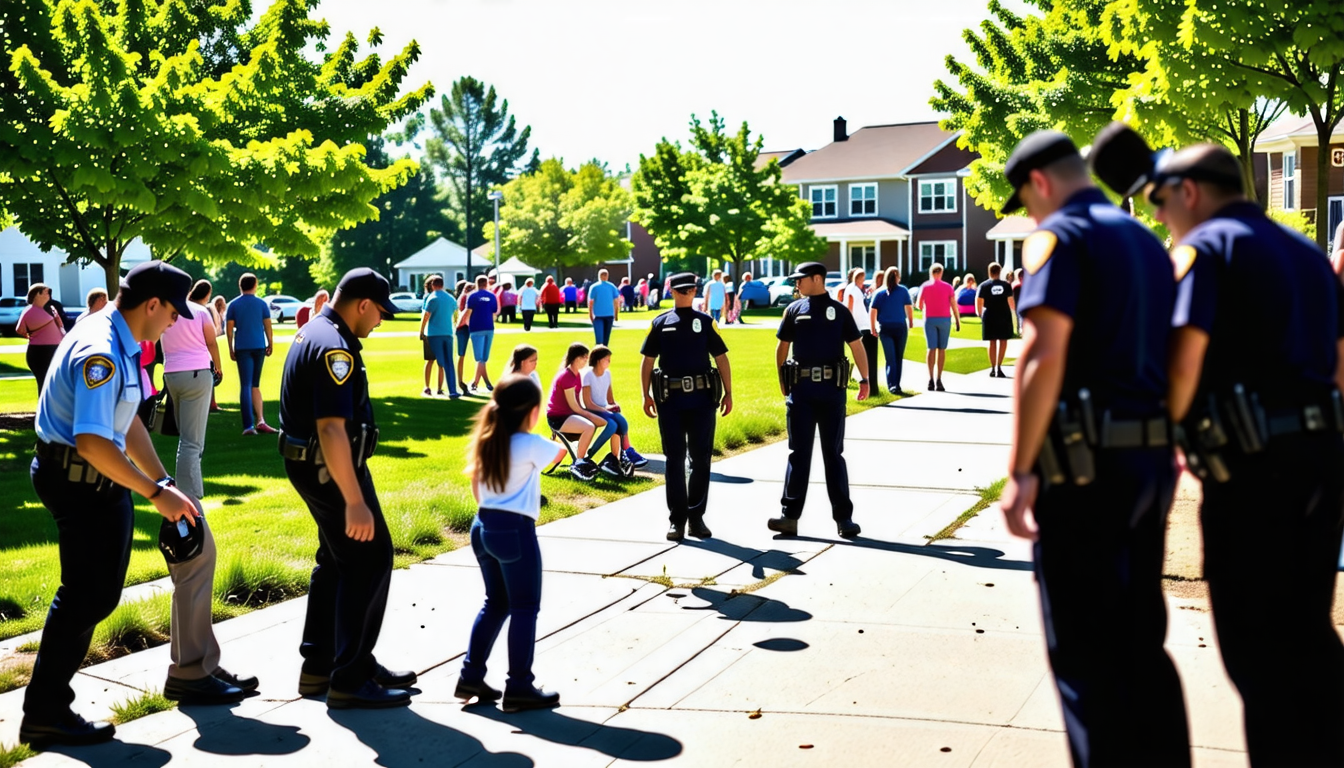|
IN BRIEF
|
Becoming a police officer in Canada is not just about wearing a badge; it’s about embodying a profound sense of duty to protect and serve the community. As a top-choice career for many, the journey to policing is both rewarding and challenging. To embark on this path, aspiring officers must navigate a series of steps that include meeting educational requirements, completing rigorous training, and mastering a variety of essential skills. From initial application stages to the moment you don the uniform, understanding the precise requirements is crucial for success. This guide will walk you through every step of the process, breaking down the barriers that stand between you and your dream of becoming a dedicated member of law enforcement in the Great White North.
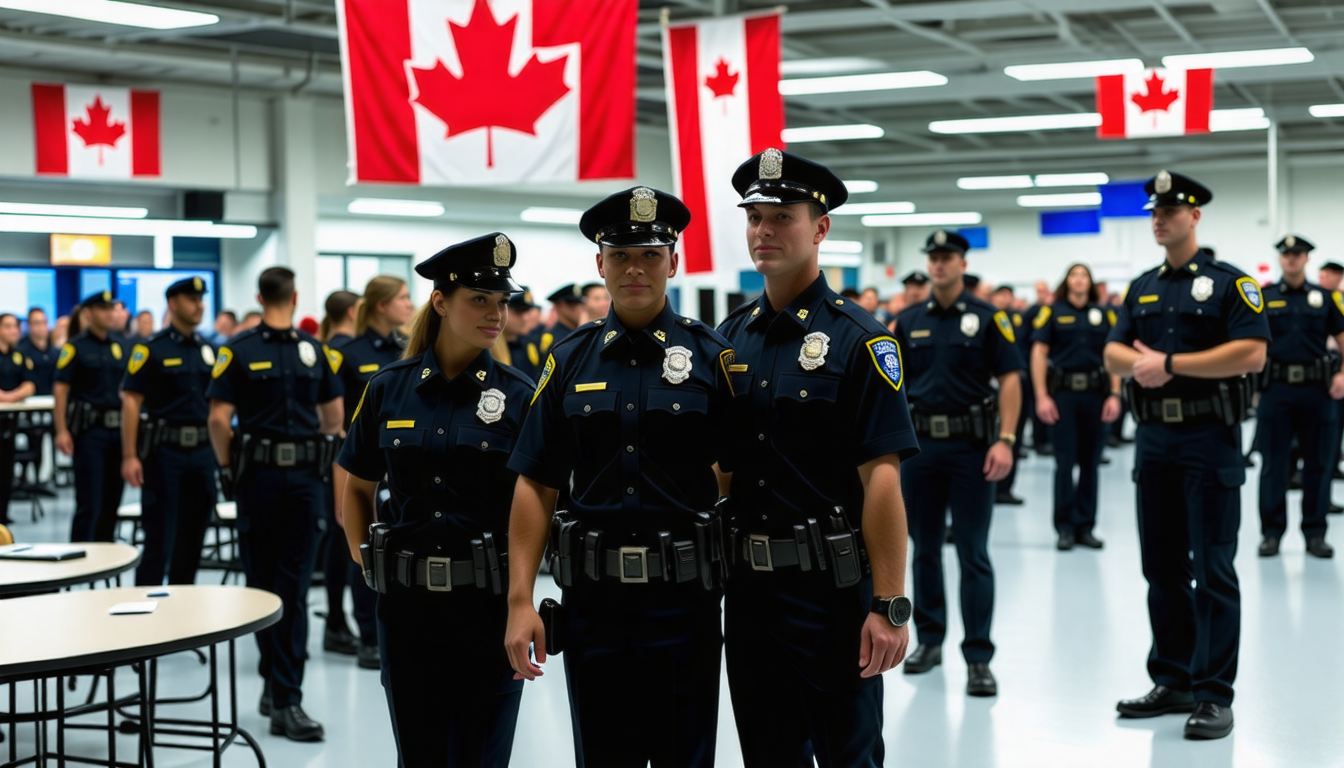
Understanding the Requirements
Before embarking on the journey to become a police officer in Canada, it is crucial to understand the basic requirements needed to qualify for this esteemed profession. Each province may have slight variations in prerequisites, yet some standards remain universally applicable.
Age and Citizenship
Applicants must typically be at least 18 years old and should have Canadian citizenship or hold permanent resident status in Canada. Those with permanent residency should consult the specific police force they wish to join, as additional stipulations may apply.
Educational Background
While a college degree is not always mandatory, it is highly recommended. Many police services prefer candidates who have post-secondary education, which provides essential critical thinking and problem-solving skills. The most common fields of study include criminal justice, psychology, and sociology, among others.
The Application Process
The next step involves submitting a formal application. This process can be intricate, depending on the police department or service you are interested in. Each organization has its unique set of guidelines that need adhering to.
Gather Required Documentation
Gathering the necessary documents is key before applying. Essential paperwork typically includes proof of citizenship, educational qualifications, and a valid driver’s license. Candidates may also need to provide personal references and undergo a background check.
Initial Screening
If your application meets the basic requirements of the police service, it will be reviewed, and you may be invited to undertake some initial screening tests. These preliminary assessments often involve written examinations and an evaluation of your physical fitness.
Physical Fitness and Psychological Testing
Part of the selection process includes physical fitness testing and psychological evaluations. This stage is critical, as it ensures that candidates possess the necessary physical and mental health to serve effectively.
Preparing for the Physical Tests
Police officers must maintain excellent physical health, so preparing for these tests beforehand can be highly beneficial. Most police services require a series of fitness assessments that may include running, push-ups, and sit-ups. It is advisable to create a fitness regimen that focuses on endurance and strength training.
Psychological Evaluations
Psychological assessments are equally important. These evaluations help determine if a candidate is mentally fit for the role and can handle the various challenges that come with police work. Anticipating questions about how you react under pressure and assessing your decision-making abilities can prepare you better.
Completion of Police Training Academy
Once you successfully navigate the initial selection stages, the next step involves attending a police training academy. This training is vital for acquiring the knowledge and skills necessary to serve as a competent police officer.
Curriculum Overview
The police academy typically combines classroom instruction with physical training and practical exercises. Instruction covers topics such as criminal law, human rights, and investigative techniques. Moreover, physical training focuses on self-defense, firearms training, and stress management.
Duration of Training
The length of the training program can differ based on the police service. Most academies have programs that last anywhere from three to six months, equipping candidates with the necessary tools to begin their careers in policing.
Field Training and Probation
After successfully completing training at the academy, the next step involves field training. This phase is pivotal in transitioning from a classroom setting to real-world policing.
Working with a Field Training Officer
During field training, new officers are paired with experienced Field Training Officers (FTOs). FTOs provide mentorship and support as you tackle the daily responsibilities of a police officer. This situation allows for a hands-on learning experience.
Probationary Period
Upon completing field training, most police services implement a probationary period, often lasting one to two years. During this time, the performance of new officers is closely monitored, and additional training opportunities may be offered.
Advancing Your Career in Policing
Specialized Training Programs
Opportunities for Promotion
Conclusion: The Rewarding Career Ahead
For more information on how to report a crime in Canada, refer to this comprehensive guide: How to Report a Crime in Canada: A Step-by-Step Guide. If you wish to know more about the necessities of becoming a police officer or the subsequent steps, consider visiting Indeed’s guide on how to become a police officer. Should you find yourself interested in becoming a detective, be sure to read about the requirements and steps involved in that career path. For those interested in federal policing, you can find the prerequisites by checking the RCMP website. It is essential to keep updated on the requirements and training methods, which can be found through the official RCMP page. Finally, you can check out the job market specifics and employment requirements for police officers in Canada on the Job Bank website. This knowledge can prepare you better for the experience that lies ahead.
For more information on how to report a crime in Canada, refer to this comprehensive guide: How to Report a Crime in Canada: A Step-by-Step Guide.
If you wish to know more about the necessities of becoming a police officer or the subsequent steps, consider visiting Indeed’s guide on how to become a police officer.
Should you find yourself interested in becoming a detective, be sure to read about the requirements and steps involved in that career path.
For those interested in federal policing, you can find the prerequisites by checking the RCMP website.
It is essential to keep updated on the requirements and training methods, which can be found through the official RCMP page.
Finally, you can check out the job market specifics and employment requirements for police officers in Canada on the Job Bank website. This knowledge can prepare you better for the experience that lies ahead.
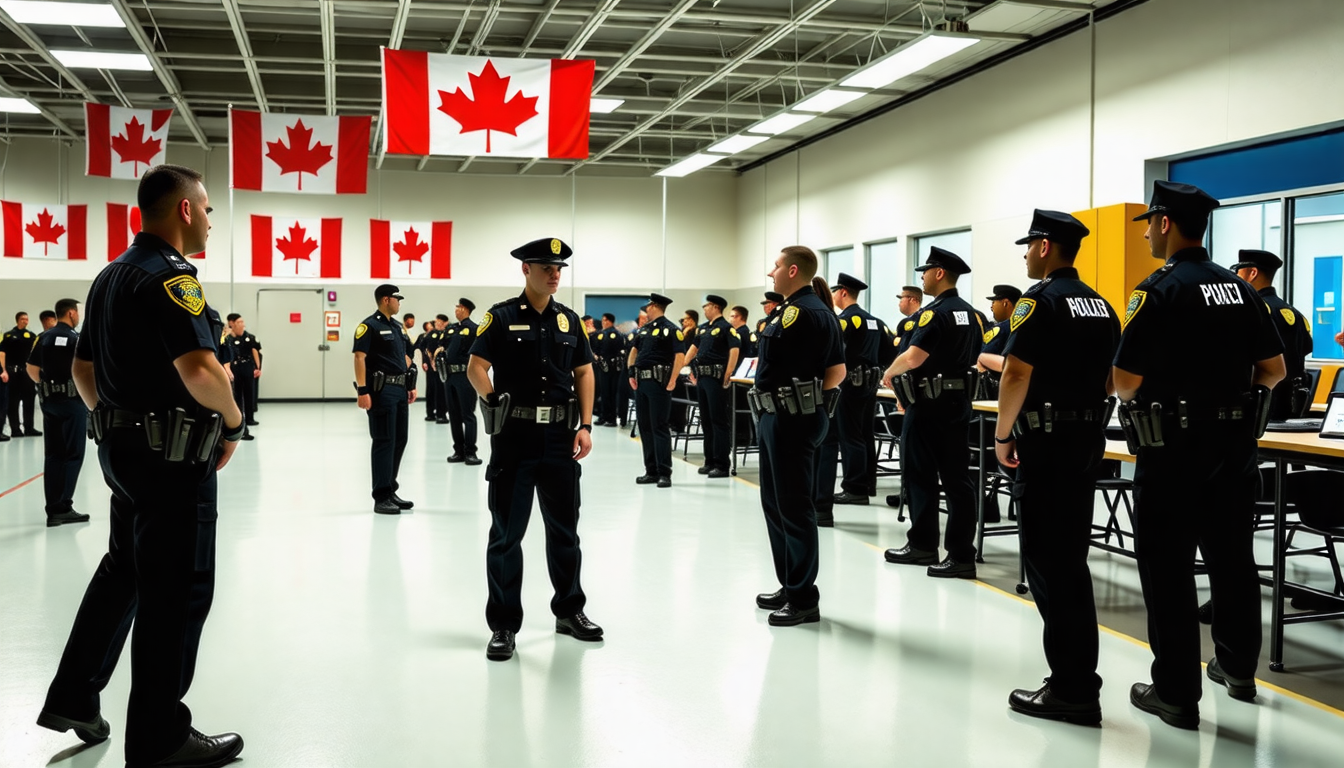
Becoming a police officer in Canada involves a series of structured steps that require both commitment and preparation. Firstly, candidates must meet certain qualifications, including being a Canadian citizen or a permanent resident. Moreover, they need to be at least 18 years old and possess a high school diploma or equivalent. These basic requirements are crucial as they lay the foundation for a successful career in law enforcement.
Once the initial criteria are met, prospective officers typically pursue some level of post-secondary education—while not mandatory, it is increasingly important in equipping candidates with relevant skills. Following this, they must pass a series of exams, including the Canada Police Exam, which evaluates cognitive abilities, problem-solving skills, and knowledge of laws (see here for preparation resources).
Training through an accredited police school is next, where recruits undergo rigorous physical and academic training. Statistics show that police officers in Canada earn an average annual salary of about $72,345, with experienced officers making up to $91,717 (source). Therefore, understanding the steps to become a police officer in Canada not only highlights the profession’s demands but also its rewards.
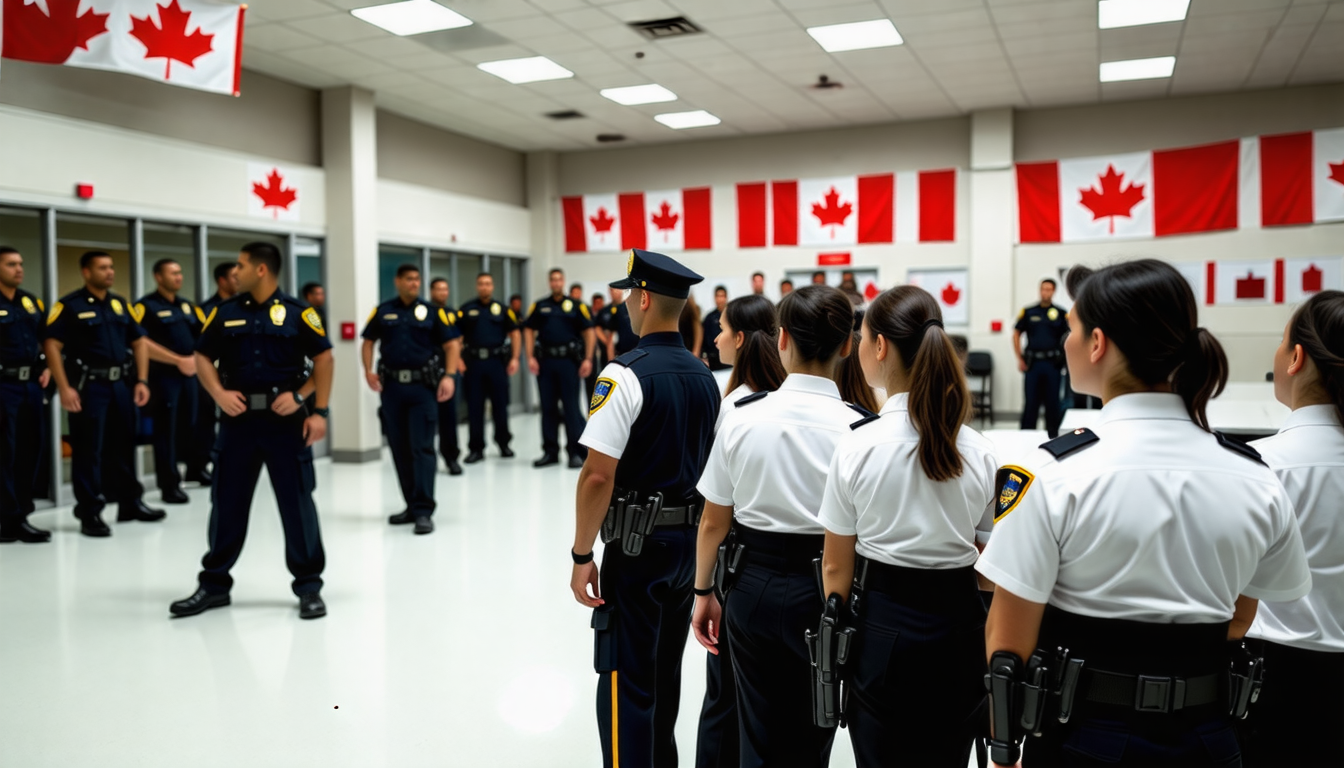
Embarking on the journey to become a police officer in Canada is a path that requires dedication, resilience, and a clear understanding of the obligations involved. First, aspiring candidates must ensure they meet the fundamental qualifications, including being a minimum of 18 years old, possessing a Canadian high school diploma, and demonstrating physical fitness and good character. Following this, successful completion of a police academy program is critical, where candidates will gain vital knowledge and skills. Furthermore, passing state law enforcement exams and background checks is essential to secure a position. Ultimately, by adhering to these step-by-step requirements, individuals can pave their way towards a fulfilling career in law enforcement, contributing positively to the community.
FAQ
What are the main requirements to become a police officer in Canada?
R: To become a police officer in Canada, you must be a Canadian citizen or a permanent resident, be at least 18 years old, have a good character, and possess a high school diploma or an equivalent. Additionally, you should be fluent in English, maintain an excellent health status, and have a good driving record.
Is a college degree necessary to apply for a police officer position?
R: While a college degree is not mandatory to become a police officer in Canada, obtaining a degree in a relevant field such as criminology or sociology can enhance your application and may be beneficial in your career progression. Many police services prefer candidates with post-secondary education.
What steps should a candidate follow to become a police officer?
R: The steps to becoming a police officer typically include applying to a police force, completing necessary background checks, attending police academy training, passing any required state law enforcement exams, and completing on-the-job training.
How long does the training to become a police officer in Canada generally take?
R: The training period for police officers in Canada can vary, but typically, it takes about six months to a year, depending on the police service and the specific training program. This includes both classroom instruction and practical on-the-job training.
What is the average salary of a police officer in Canada?
R: The average salary for a police officer in Canada can vary depending on the province and years of experience, but generally, it ranges from $60,000 to $100,000 annually. Benefits and overtime can also contribute significantly to overall earnings.
